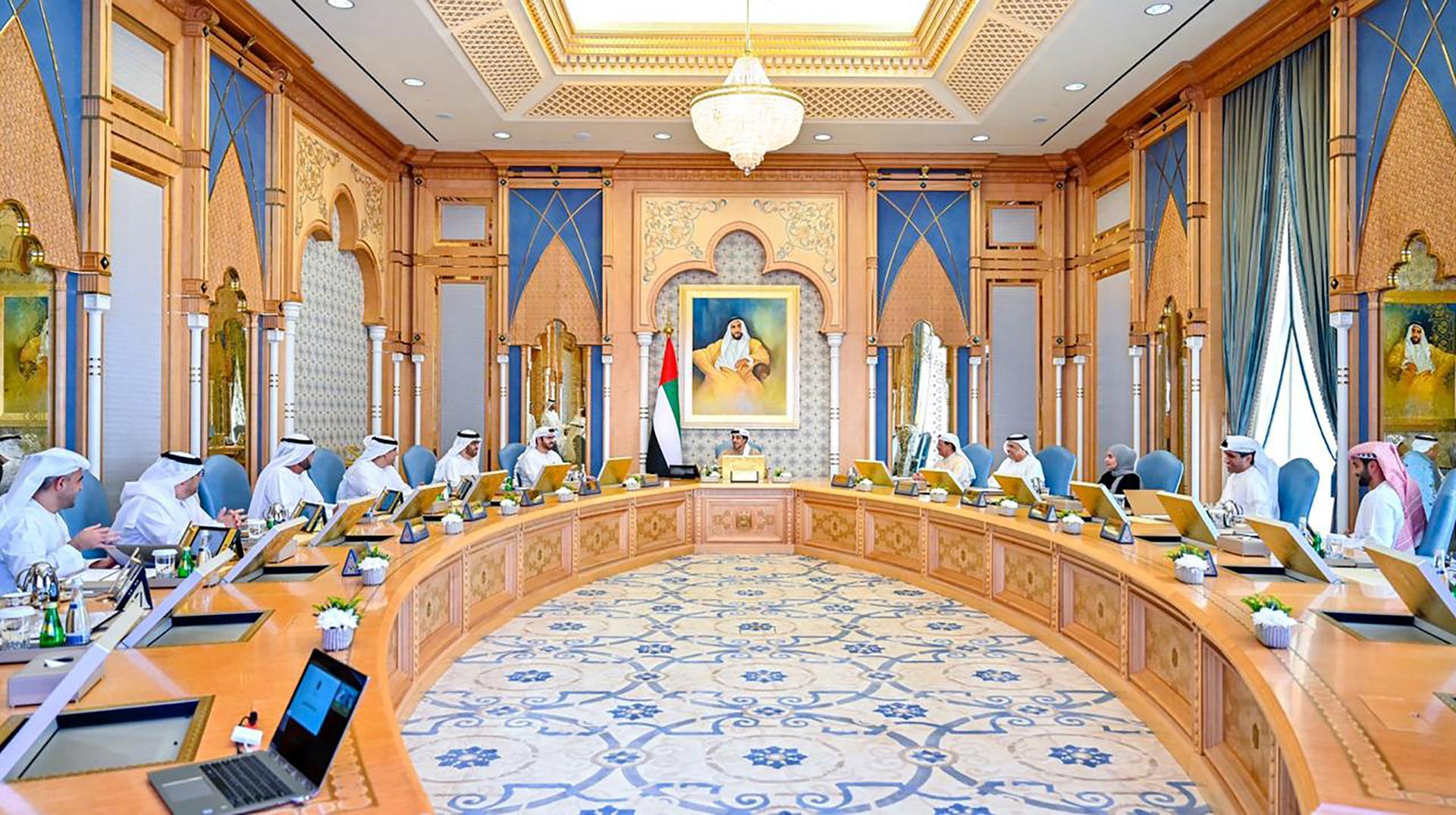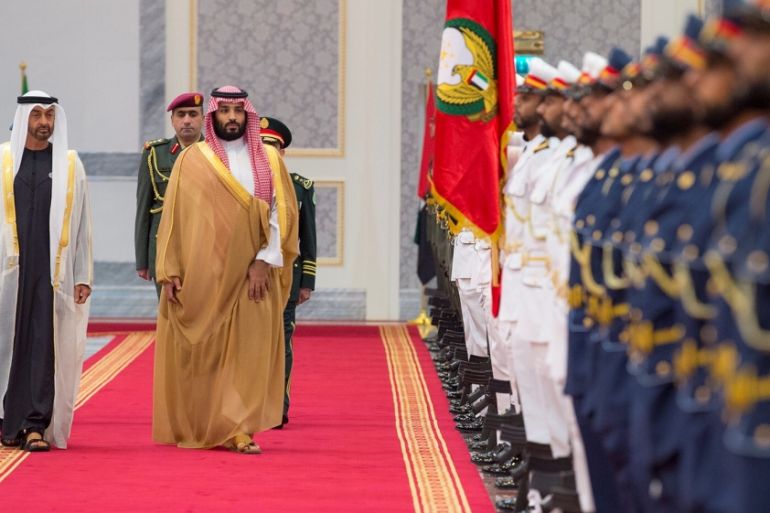Table of content
The Transformation Status in Democracy
The Transformation Status in the Market Economy
The Transformation Status in Management
Over the past twenty years, United Arabs Emirates has entered a new stage in its national development. The nation is stable with solid ruling arrangements, which are not under any circumstances subject to any immediate threat. Two decades after the federation establishment, the UAE has now been able to complete its consolidation and has now formally integrated family rule within its institutional set-up. The UAE governance is committed to modernize the nation on all levels, it economic wise, political level or social life.
This involves solidifying the fundamentals of a market economy, expanding institutions and increasing the overall administrative capacity of the nation (Heard-Bey, 2005, n.p). As a result, the nation has turned its attention outward in order to pursue social and economic development. As it should be expected, the nation has experienced some challenges as it strives to accomplish its agendas. This report therefore focuses on the transformations made in the United Arabs Emirates over the past two decades

Having been made of seven emirates, the federation was established on December 2, in the year 1971. With each passing year, the federation has grown successfully as a federal entity. However, the UAE success and much resilience are due to the structure of its government.
The nation has made tremendous strides in its national economic development, bearing the fact that its national GDP rose from 46 billion dollars in 1995 to around 240 billion dollars in 2008; making an increase of around 500%. This increase was contributed by the fact that the country possesses the fifth largest oil reserve in the world and that it has a small population of around 900000 nationals.
The nation has been transformed by the vast investment in infrastructures and services it provides. The country aims at using its oil wealth to sustain further development and be able to assist in various economic diversification efforts. Despite the fact that the country enjoys the economic advancements, UAE has not yet witnessed similar maturity when it comes to politics.

The UAE’s ruling families have not felt the necessity to expand political participation for the population at large. Despite its lack of the democratic institutions, the nation is not an authoritarian state without any political developments. The democratizing trend includes the process of institutionalization and the internal debate the state holds concerning the broadening of participation and accountability (Heard-Bey, 2005, n.p).
The Transformation Status in Democracy
Since the security forces of the country have complete control over the entire country, the UAE faces no threat to the state’s monopoly on the use of force. The nationals accept the government as being highly legitimate and the agreements exists on the concept of citizenship as to who should become the citizen of that country.
The society remains structured along the tribal identification lines, meaning that allegiance is not pledged, even primarily to the state. Tribal lineage therefore as a consequence creates class distinctions. Many stateless people in UAE are still waiting to be naturalized. The overall population of the country is highly unbalanced with the UAE citizens only comprising about 15% of the whole population, the fact which has in turn increased citizens’ identification with the federation.
The UAE’s legislation is based on both civil laws and Islamic legislation. Having the state functioning as a secular order with the modern institutions, the ruling elite on the other hand uses Islam as a basis of legitimacy and has thus integrated, in one form or another, religious dogmas into legal and political sphere. The Islamic Shariah courts deals with personal status cases and also the criminal cases as well as labor and commercial disputes. The country’s federal nature guarantees that numerous functions remain the prerogative of the individual emirates.
The federation tends to duplicate services and demonstrate a basic reluctance to hand over power to the federal authorities. The emirates maintains a strong commitment to improve the services and efficiency of state institution and also set-up an independent accountability authority to ensure that government departments are managed efficiently thus enhancing democracy.
The Transformation Status in the Market Economy
The United Arabs Emirates has experienced tremendous economic growth in the period of ten years although the country was feeling the effect of the global financial crisis by the end of 2008. The growth of the economy in the year 2007 was 7.6% while that for 2008 was 7.7% while the GDP rose from 170 billion dollars in 2006 to an estimated amount of 240 billion dollars by the end of 2008.
This is a huge improvement within two years. The country was thus ranked at number 31 in the human development index (Khalaf & Alkobaisi, 1999, n.p). The country’s economy is supported by the high oil revenue considering that the price for a barrel reached a record as high as 147 dollars in July 2008.

The government uses the oil to promote a progressive economic agenda built around economic liberalization, diversification and enhancing the role of the private sector. Dubai for instance, as one of the emirates, focused its attention on the development of the services sector, tourism and large scale real estate projects. Although poverty exists in some emirates as Fujairah the large majority of Emirati nationals benefit from the country’s wealth and development. Unlike many countries the UAE economy has grown economic-wise to the extent that the nationals enjoy a tax free economy and if it the government applies taxation, then it is not felt.
UAE has defined itself as an open market where competition is encouraged and where economic liberalization is actively pursued by the government. The UAE places a high premium on maintaining macroeconomic stability. As a result therefore, despite the large budget surpluses on the back of rising oil revenues, the government continued a process of reducing the country’s reliance on volatile oil revenues basically by stepping up infrastructure spending and pressing ahead with diversification efforts.
The nationals in UAE have right to own properties and the government provides its citizens with a comprehensive system. In general, the nationals of UAE do not face any restrictions in terms of access to employment opportunities, education, public services or various other assistance mechanisms.
The Transformation Status in Management
The UAE leadership experiences only some limited structural constraints on its ability to govern, at least domestically. The decision making is made by the ruling family which faces no significant limitations. The only constraint pertains to the lack of a qualified national work force and to a certain degree on low and inconsistent work ethic. Over the past two decades, the social and political polarizations are very limited within the UAE. The government is currently engaged in a process of strategic planning within the highest level of government, which is subject to regular review and adjustment.
While the individual emirates have put forward their own strategic documents, the federal government launched its strategy in the year 2007, all in the effort of improving a totally transforming the country positively. Over the years the government has laid the parameters for policy initiatives and follows this up with alterations when policy steps fail to achieve the desired results (Whiteoak, Crawford & Mapstone, 2006, n.p).
The country’s leadership is committed to continuing its economic development and to outlining a process of political reform that will respond to the demands of the young UAE population and ensure that the dynastic control of the various ruling families remain intact (Khalaf & Alkobaisi, 1999, n.p). In general, the capacity of the nation to absorb and implement all policies that are being made by the leadership is limited and constitutes structural constraints. This has been the case over the last twenty years. All along the country remains depended on the large-scale availability of foreign expertise.
The United Arabs Emirates has been a model for development and has witnessed tremendous achievements since the establishment of the federation and of much importance in the last two decades. The country possesses the fifth largest oil reserve in the world and that it has a small population of around 900000 nationals.
This factor gives the federation advantage to continue growing. If the country establishes maturity in the political aspect, then it should greatly improve on its economic and general prosperity. The federal government launched its strategy in the year 2007, all in the effort of improving a totally transforming the country positively. The general strategic outlook is favorable, thus no reason suggests that UAE cannot maintain its forward progress and generally keeping its model character.
References
Whiteoak, J. W., Crawford, N. G., & Mapstone, R. H. (2006). Impact of gender and generational differences in work values and attitudes in an Arab culture. Thunderbird International Business Review, 48(1), 77-91.
Heard-Bey, F. (2005). The United Arab Emirates: Statehood and nation-building in a traditional society. The Middle East Journal, 357-375.
Khalaf, S., & Alkobaisi, S. (1999). Migrants’ strategies of coping and patterns of accommodation in the oil‐rich Gulf societies: evidence from the UAE. British Journal of Middle Eastern Studies, 26(2), 271-298.